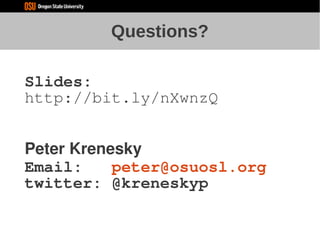This document provides an introduction to the Python programming language. It covers basic Python concepts like data types, strings, data structures, classes, methods, exceptions, iterations, generators, and scopes. Python is described as an easy to learn, read, and use dynamic language with a large selection of stable libraries. It is presented as being much easier than bash scripts for building and maintaining complex system infrastructure.
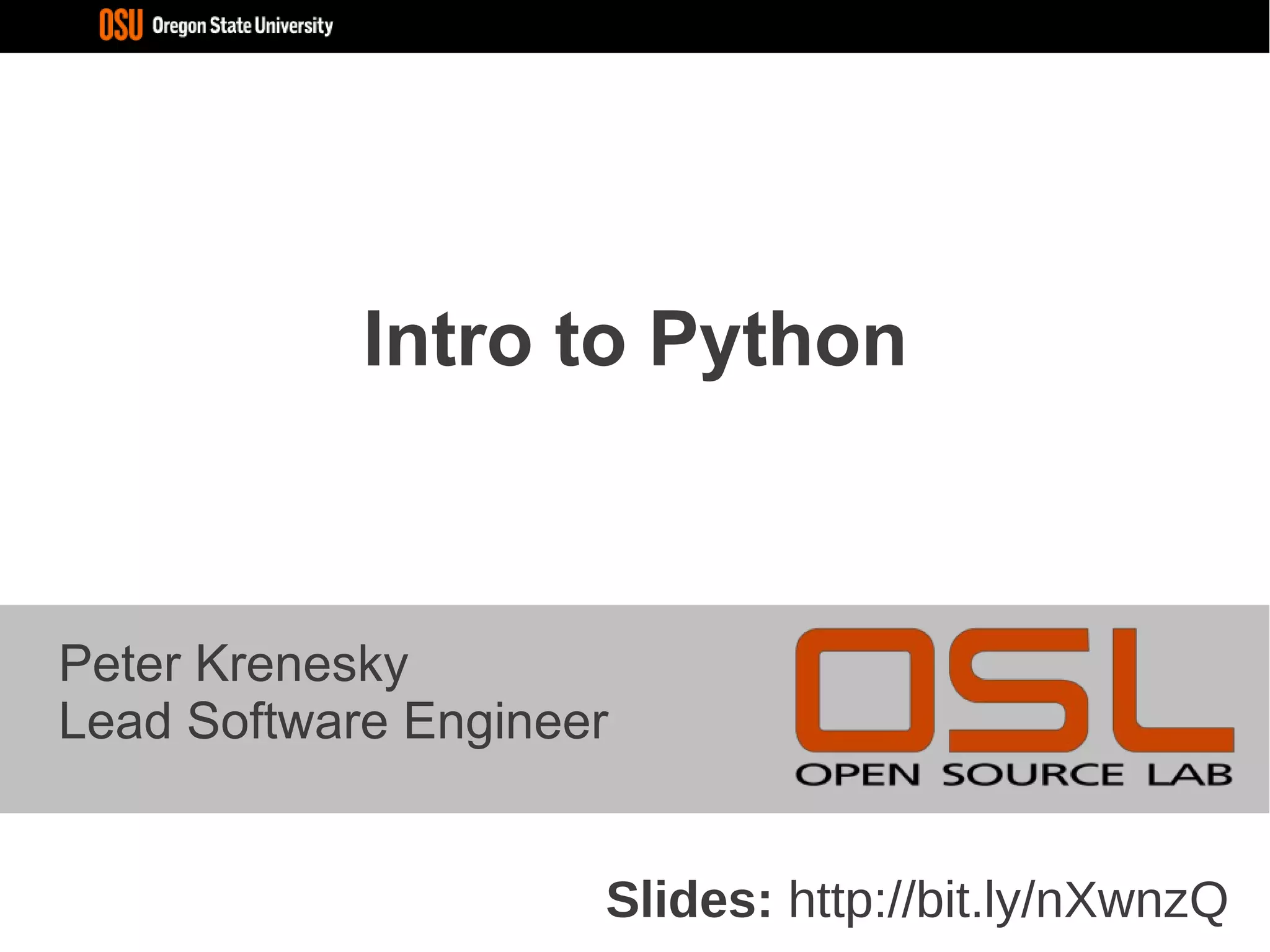
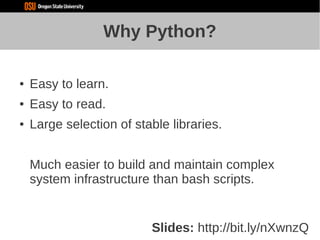
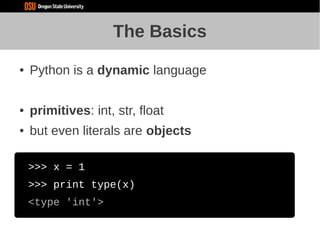
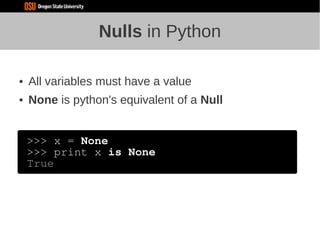
![Strings
x = “a string”
z = str(1)
# string concatenation
“, ”.join([x, y])
# string prefixes (types)
u”A Unicode String”
r”A raw string, ignores / escapes!”](https://image.slidesharecdn.com/introtopythonlinuxlearnersday-110824130258-phpapp02/85/Intro-to-Python-5-320.jpg)
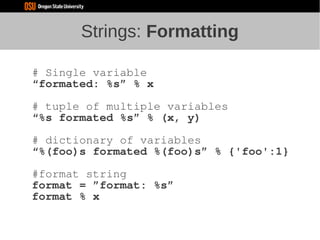
![Basic Data Structures
● tuple: (1, 2, 3)
● list: [1, 2, 3]
● dict: {“a”:1, “b”:2, “c”:3}](https://image.slidesharecdn.com/introtopythonlinuxlearnersday-110824130258-phpapp02/85/Intro-to-Python-7-320.jpg)
![Data Structures: dict
# create
d = {'a':1, 'b':2}
d = dict(a=1, b=2)
# add / update
d['a'] = 2
d['c'] = 3
# remove items
del d['a']
# iterators of keys, values, or both
d.keys()
d.values()
d.items()](https://image.slidesharecdn.com/introtopythonlinuxlearnersday-110824130258-phpapp02/85/Intro-to-Python-8-320.jpg)
![Data Structures: tuple
# create a tuple (immutable list)
t = ()
t = (1, 2, 3)
t = tuple(iterable)
# indexable
x = t[1]
# implicit tuple creation
t = 1, 2, 3
# unpacking
a, b, c = t](https://image.slidesharecdn.com/introtopythonlinuxlearnersday-110824130258-phpapp02/85/Intro-to-Python-9-320.jpg)
![Data Structures: list
# create
x = [1, 2, 3]
x = list(iterable)
# add items
x.append(item)
x.insert(position, item)
# remove items
x.remove(item)
x.pop()](https://image.slidesharecdn.com/introtopythonlinuxlearnersday-110824130258-phpapp02/85/Intro-to-Python-10-320.jpg)
![Data Structures: slices
>>> x = [0, 1, 2, 3, 4]
>>> print x[1:3]
[1, 2]
>>> print x[1:]
[1, 2, 3, 4]
>>> print x[:2]
[0, 1]
>>> print x[0:5:2]
[0, 2, 4]
>>> print x[-1]
4](https://image.slidesharecdn.com/introtopythonlinuxlearnersday-110824130258-phpapp02/85/Intro-to-Python-11-320.jpg)
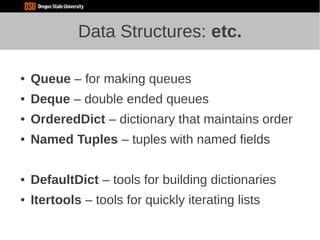
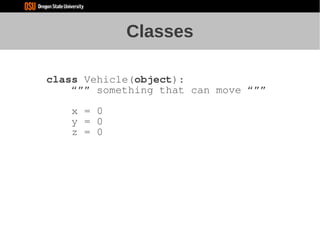
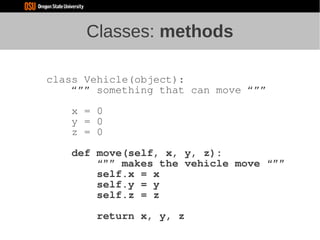
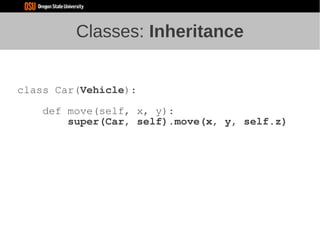
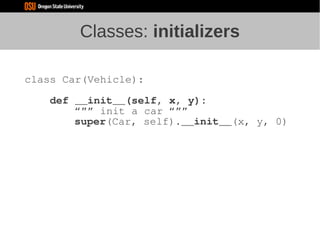
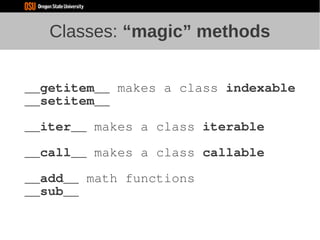
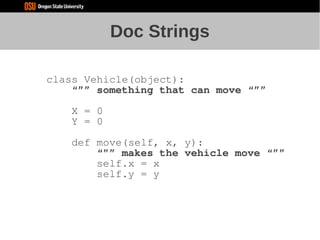
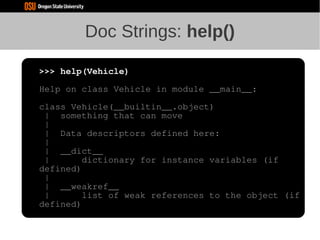
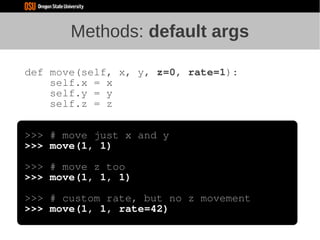
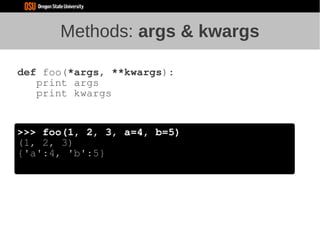
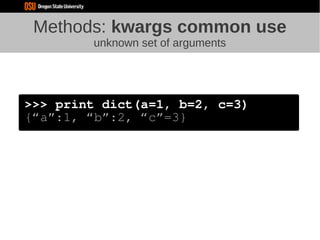
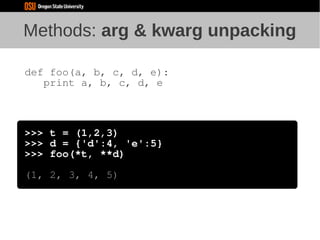
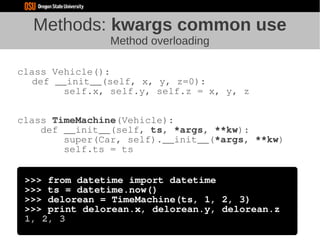
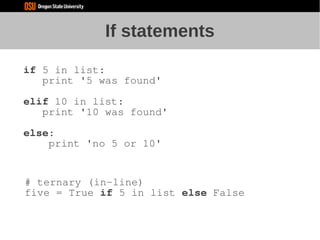
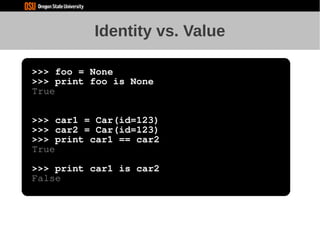
![Sequences as booleans
>>> empty = []
>>> full = [1, 2, 3]
>>> print bool(empty)
False
>>> print bool(full)
True
>>> print bool(“”) or {}
False](https://image.slidesharecdn.com/introtopythonlinuxlearnersday-110824130258-phpapp02/85/Intro-to-Python-27-320.jpg)
![__contains__
>>> foo = [1, 2, 3]
>>> print 2 in foo
True
>>> bar = dict(a=1, b=2, c=3)
>>> print “d” in bar
False](https://image.slidesharecdn.com/introtopythonlinuxlearnersday-110824130258-phpapp02/85/Intro-to-Python-28-320.jpg)
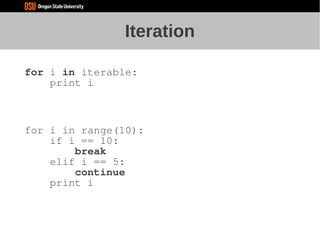
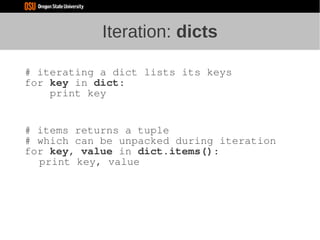
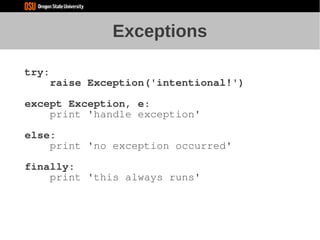
![List Comprehensions
>>> [i**2 for i in range(3)]
[0, 1, 4]
>>> [i**2 for i in range(3) if i > 0]
[1, 4]
>>> (i for i in range(3))
<generator object <genexpr> at 0xf717d13>](https://image.slidesharecdn.com/introtopythonlinuxlearnersday-110824130258-phpapp02/85/Intro-to-Python-32-320.jpg)
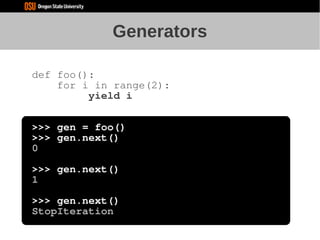
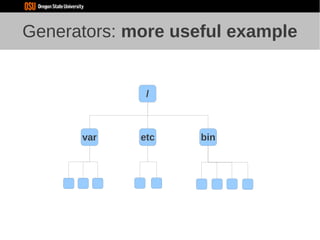
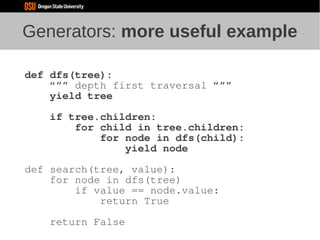
![Scopes
GLOBAL_VARS = [1, 2]
print GLOBAL_VARS
class Foo():
class_scope = [3, 4]
def bar(self, class_scope_too=[5, 6]):
local_scope = [7, 8]
class_scope_too += local_scope
print class_scope_too](https://image.slidesharecdn.com/introtopythonlinuxlearnersday-110824130258-phpapp02/85/Intro-to-Python-36-320.jpg)

